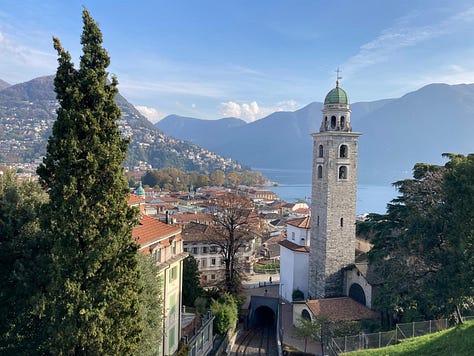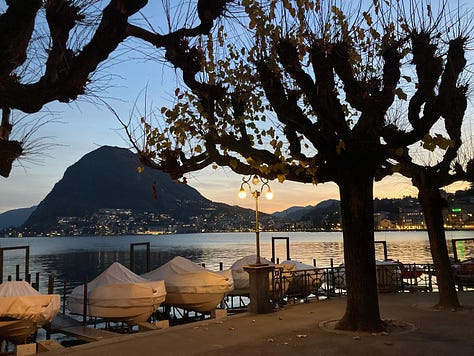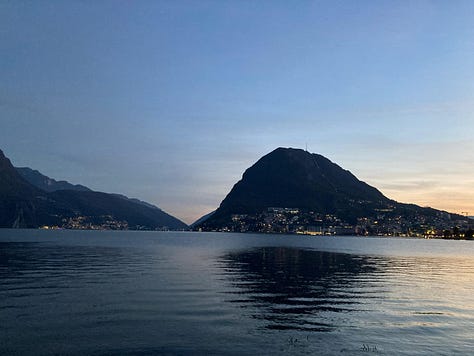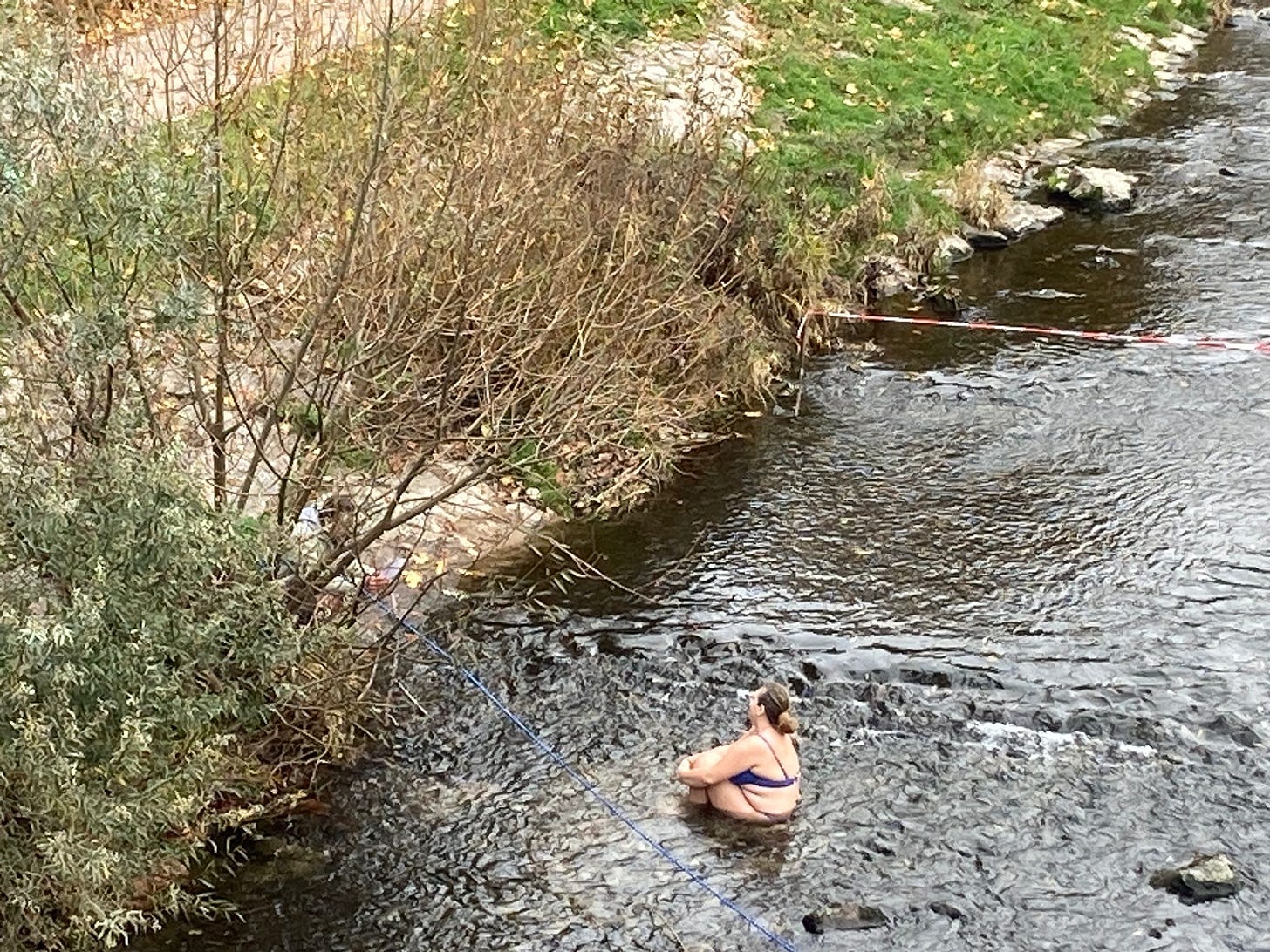Hello, Mentatrix readers,
welcome to a new Sunday post, with its usual reflection prompt. Whether nature, local culture, a fictional character, or a personal story, I like to search for significance and enjoy sharing it with you.
These past weeks I’ve been swallowed by my work life. Even Lili Comes to Herself, my coming-of-age novel, has slid into the background, although its Kindle launch date is approaching (5 December), and I’ve got good reasons to be proud of it. A Pulitzer Prize-winning author has given me a very positive blurb for me to put on the front cover. I worked on the cover and on the book description for over two months, but now I’m quite happy with both.
You can already pre-order the Kindle version here.
But work’s claimed eighty percent of my RAM. The past week I’ve been in Switzerland: first in Lugano, then in Basel.
And on the last day, something on a bridge over the Rhine in Basel caught my eye. It was this:

So if you’re considering suicide, I thought, be aware that you might be prosecuted.
I was crossing another bridge over another river a day later in Freiburg, barely 60 km north of Basel, when I saw this:
Yes, it’s a picture taken on 16 November (not August!), at 3.5 degrees Celsius.
There seemed to be a challenge being streamed on social media: a guy was squatting on the river bank with a phone camera and talking at the woman, apparently counting down the minutes she was spending in the freezing water.
I instantly remembered the other bridge. The other picture I took.
And it made me think of boundaries.
In Basel, boundaries were drawn to protect the community from individuals straying from the norm; maybe even to protect the individual from themselves.
In Freiburg, boundaries of the body and boundaries of the sensational were being blown up.
Boundaries.
They are usually about claiming our space and asserting ourselves, as in set boundaries. Or they can be about separation, segregation, seeing the difference instead of the commonalities.
I remember my own boundaries as a young introverted adult, drawn carefully to make me feel safe. I preferred a distance, and kept my involvement, whatever it was, private and safely tucked away.
Until my first boss and mentor challenged me: “You need to care, Zoe, that’s all, you just need to look around and care,” she said. She meant that I could start getting involved in the small language centre she was leading.
So boundaries were dispelled: I started looking around with a caring eye. I got involved. I took sides. I nested. I owned.
But not long after, she gave up her own involvement. She stopped owning that baby. I was left caring in a void.
I needed to draw new boundaries, therefore, so I can pack my bags and hitch a hike on, into my next career stage.
But back to Switzerland last week: Lugano is an Italian place within Swiss borders. It’s all Italian language, and a very north-Italian landscape.
Boundaries? Offset. The real border is just about 10 km away.



But then, Switzerland itself is a construct (like most states, in fact), and constructs rely on boundaries. It took me long to learn that Switzerland was formed by a purposeful oath alliance, or commonwealth, between cantons, which created the Swiss Confederacy. This literally drew boundaries, as the alliance was in place mainly for security. But interestingly, the confederacy also dissolved boundaries between the cantons, by putting them all under one flag.
To this day, the Swiss speak at least three languages, achieving a paradoxical unity through respect of differences.
My week in Switzerland ended with the closing ceremony of the international conference I attended. That’s when we watched an international school’s band from Basel playing Brazilian samba. (Interestingly, the opening ceremony had featured traditional Swiss songs and playing of Alp horns).
Boundaries? Impactful by being transcended.
The last thing that popped up in my mind about boundaries was a conflict I’ve had with a coworker, and the way it was resolved. I apologised for my abrupt manner, but held my ground about the points I’d made.
I ran into her a few weeks later in our headquarters, on one of the occasions I was there. I waved to her from a distance, and she came over and we had a brief chat, the usual small talk. Did it mean she’d accepted my apology, or was she just being polite?
In our most recent online call, I asked her if we were good.
She put on a warm smile and said, “Yes!” (Of course, what can anyone answer when you put them on the spot — I have to admit I did it on purpose, to push her to commit 😊)
But she added: “You know, Zoe, I’d had a very tough time, lots of stress. And then, you waved to me that day in the headquarters and said hello and talked to me. It felt — can’t tell you exactly why, but it felt so reassuring. Thank you!”
I was speechless. I’d been unsure whether it was worth waving and saying hello to her, not knowing where we stood. But now it turned out that it had touched her more than I could have predicted.
The elusive boundaries between us, which we erect, or dismantle, without knowing. The power of a chance gesture.
So do boundaries mean separation, or self-assertion? Pushing back, or forcing into view?
Or do they dance like puffy November fogs, both hiding and revealing, offsetting and transforming?









